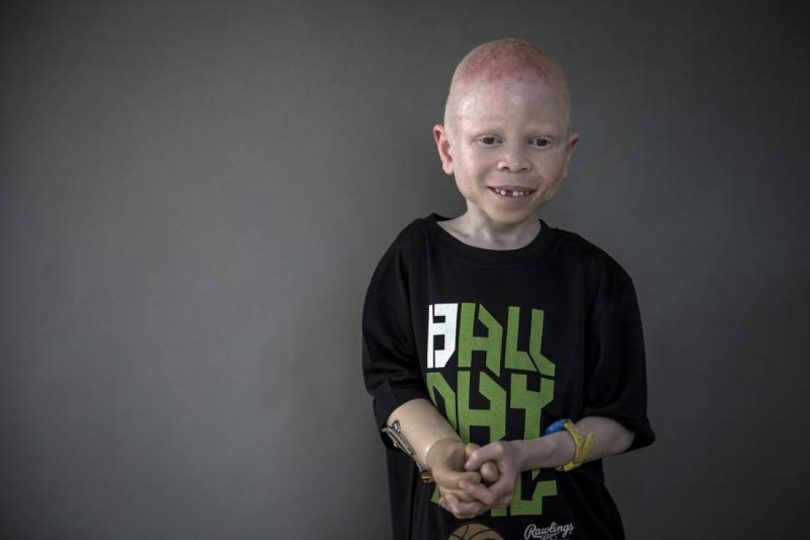Malawi must urgently overhaul its criminal justice system to protect people with albinism who risk mutilation and murder for body parts that are prized in black magic, rights groups said on Thursday.
Although 148 attacks have been reported to police since November 2014, there have only been two successful prosecutions and most cases remain unresolved, Amnesty International said.
The United Nations' top expert on albinism, Ikponwosa Ero, told the Thomson Reuters Foundation that body parts could fetch tens of thousands of dollars in the underground trade, which extends to neighbouring Mozambique and Tanzania.
Ero has previously said people with albinism - a lack of pigmentation in the skin, hair and eyes - are at risk of "extinction" in Malawi because of the violence.
Amnesty said in a report that less than a third of reported attacks had been dealt with and called for all pending cases to be concluded promptly.
Deprose Muchena, Amnesty's Southern Africa director, said the authorities must immediately end impunity for "these vile, hateful crimes".
"The Malawian authorities must ensure that people with albinism no longer live in fear of organised criminal gangs who prey on their body parts," he added in a statement.
"The government must overhaul the judicial system to guarantee (their) security and safety."
No one from the government was available for comment.
The report said the 148 cases included 14 murders and seven attempted murders, according to police figures, but Amnesty said it had found that at least 21 people had been killed since 2014.
Ero suggested Malawi seek international support to ramp up investigations and prosecutions.
"The numbers alone tell you something is not right. The response is failing, if there is one. Something has to be done to make this more of a priority for the government," she said.
On Tuesday, the Association of People with Albinism in Malawi (APAM) said six people with albinism would contest elections in Malawi next year in a bid to tackle stigma and violence.
APAM said successive governments had failed to address the many "daunting challenges" faced by people with albinism, including the lack of justice.
Amnesty said problems included a lack of financial resources and a dearth of senior magistrates and qualified prosecutors.
It said most prosecutors were police officers with no legal training, which resulted in suspects being acquitted or convicted on lesser charges.
Amnesty called for greater efforts to identify the source of demand for body parts, which some believe bring wealth and luck.
It also urged Malawi to enlist the help of neighbouring countries in tackling cross-border trafficking of people with albinism and their body parts.
An estimated 7,000 to 10,000 people with albinism live in Malawi, according to the report. - Reuters




